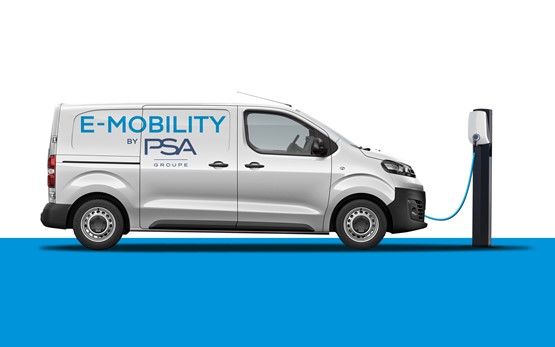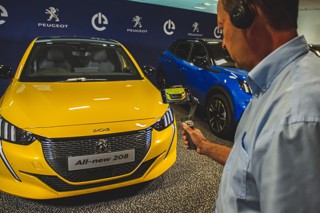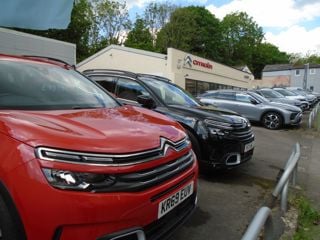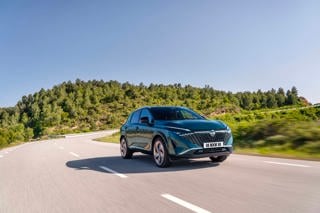Groupe PSA is promising there will be no compromises with its electric vehicles (EVs) as it expands its range to include commercial vehicles.
Following the introduction of the group’s fully electric small car, offered as the Peugeot e-208, Vauxhall Corsa e and DS 3 Crossback E-Tense, PSA is adding a medium sized electric van and people carrier to its line-up.
When the new commercial vehicles arrive in respective dealerships next year, they will be known as the Peugeot e-Expert, Citroen e-Dispatch and Vauxhall Vivaro-e.
Xavier Peugeot, senior vice-president of Groupe PSA’s LCV division, said: “The PSA ambition is to make sure that we can continue to provide freedom in mobility to our customers.
“We know that rules and regulations are changing, particularly in big cities. Access to city centres will be different in the coming years. We need provide our customers with concrete electric answers to allow them to continue to work.
“At the same time, we would like to be able to move people, all together, which is why shuttles will become e-shuttles.”
Following the launch of these models, the group says will offer electric engines on all its commercial vehicles by 2021.

Initially, the vehicles will be targeted at ‘professional users’, which means the bulk of sales will go to larger fleet customers rather that individual retail buyers.
“Our message is clear and simple: no compromise, no trade off. This is not a one-shot with one dedicated electric van. We want the entire LCV range for PSA to be electrified by the end of next year.
“People who are moving to electric vehicles shouldn’t see major differences. They should have the benefits but still expect the same performances. This is the key aspect we will deliver with these vans.
“We are mainly talking to professionals. They have a wide range of needs and a high standard of expectations. We cannot offer them something that isn’t complete. We will have a full matrix of variants.”
In the first year, Peugeot said that electric LCVs will account for around 5% of the group’s total LCV sales. This is expected to reach 15% within five years.
“That is something we will look at carefully,” he explained. “There is an acceleration of EV sales happening in Europe. We will keep looking at the figures to see if we need to adjust our mix.”
The new electric vans will offer a range of 143 or 205 miles, depending on version.
“83% of customers use their van less than 200Km per day and 44% never drive more than 300Km per day,” said Peugeot.
Most buyers (around 70%) are expected to opt for the larger battery pack due to concerns about range anxiety - the fear of running out of charge. This is despite PSA's research suggesting that the smaller battery pack will cover the routine daily driving needs of 83% of its van customers.
Load volume is unaffected by the electrified powertrain, with the battery pack integrated into the van’s chassis all versions offer the same practicality as their ICE-powered counterparts.
The XS version (4.6m length) provides a 5.1 cubic metre load space and is available with a 50kWh battery – giving a range of 143 miles.
The M version is 4.95m long and can be specified with the 50kWh battery or the larger 75kWh unit, which increased range to 205 miles.
XL versions are 5.3m long and provide up to 6.6 cubic metres of load space. These are fitted with the larger battery only.
All can tow up to 1,000Kg and payloads are rated at up to 1,000Kg regardless of size or battery.
The electric motor is the same one found in PSA’s small electric cars. It develops 136PS and 260Nm. Top speed is restricted to 80mph.
Charging times vary, with the smaller battery able to gain an 80% charge in just 30 minutes when using a 100kW charging point.
The van can be specified with either a 7.4kW or 11kW on board charger, depending on the charging needs of the user.
Passenger car versions of the vans will be known as the Peugeot e-Traveller, the Citroen e-Spacetourer and the Vauxhall Vivaro-e Life.
They will only be available with the smaller 50kWh battery pack in the UK, enabling a range of 143 miles.
Like the standard versions, the electric models can be specified in 4.95m short-wheelbase form and 5.3m long wheelbase form
Up to eight passengers can be carried, leaving 1500 litres of boot space, with that figure extending to 4900 litres when the rearmost two rows of seats are removed.
Order books for the commercial vehicles will open this month (July), while the passenger car will go on sale in September. Deliveries for both will commence before the end of 2020.



















Login to comment
Comments
No comments have been made yet.